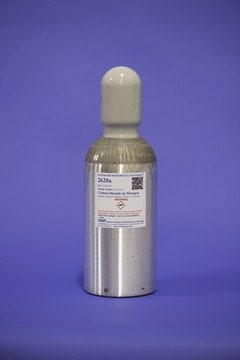47322
Butylbenzene
analytical standard
Synonym(s):
1-Phenylbutane
About This Item
Recommended Products
grade
analytical standard
Quality Level
vapor density
>1 (vs air)
vapor pressure
1.03 mmHg ( 23 °C)
autoignition temp.
774 °F
expl. lim.
5.8 %
packaging
ampule of 1000 mg
technique(s)
HPLC: suitable
gas chromatography (GC): suitable
refractive index
n20/D 1.489 (lit.)
bp
183 °C (lit.)
mp
−88 °C (lit.)
density
0.86 g/mL at 25 °C (lit.)
application(s)
environmental
format
neat
storage temp.
room temp
SMILES string
CCCCc1ccccc1
InChI
1S/C10H14/c1-2-3-7-10-8-5-4-6-9-10/h4-6,8-9H,2-3,7H2,1H3
InChI key
OCKPCBLVNKHBMX-UHFFFAOYSA-N
Gene Information
human ... CYP1A2(1544)
Looking for similar products? Visit Product Comparison Guide
Application
Signal Word
Warning
Hazard Statements
Precautionary Statements
Hazard Classifications
Flam. Liq. 3
Storage Class Code
3 - Flammable liquids
WGK
WGK 3
Flash Point(F)
138.2 °F - closed cup
Flash Point(C)
59.0 °C - closed cup
Personal Protective Equipment
Choose from one of the most recent versions:
Already Own This Product?
Find documentation for the products that you have recently purchased in the Document Library.
Our team of scientists has experience in all areas of research including Life Science, Material Science, Chemical Synthesis, Chromatography, Analytical and many others.
Contact Technical Service








